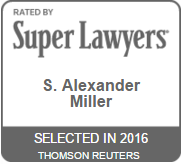Every year, the H-1B visa program is subject to a strict numerical “cap”—65,000 regular H-1Bs and an additional 20,000 for individuals holding U.S. master’s degrees. As a result, the process has become increasingly competitive, with USCIS implementing a lottery system to randomly select applicants each fiscal year. Employers not selected in the lottery must wait until the next cycle—causing major delays and disruptions in hiring plans.
However, not all H-1B employers are subject to the cap. Certain institutions—such as institutions of higher education, affiliated non-profits, and nonprofit research organizations—may qualify as “cap-exempt” and are eligible to file H-1B petitions year-round without being subject to the lottery.
Recently, our office represented a non-profit research organization based in Washington, D.C. that sought to hire three international researchers. The organization conducts public health and social science research in partnership with universities and international organizations and was unfamiliar with the H-1B visa process. They approached our office to understand their options and whether they would qualify for cap-exempt H-1B filings.
THE LAW:
The H-1B visa is a nonimmigrant classification for individuals employed in a “specialty occupation”—a role that requires the theoretical and practical application of a body of highly specialized knowledge and a bachelor’s degree or higher in a specific specialty.
Employers who qualify as nonprofit research organizations or as entities affiliated with institutions of higher education may file H-1B petitions without regard to the cap or the lottery. However, proving cap-exemption status is not automatic—employers must provide detailed evidence of their structure, research functions, and (if relevant) affiliations with qualifying institutions. USCIS frequently issues Requests for Evidence (RFEs) challenging these classifications or the nature of the job offered.
THE RESULT:
We conducted a thorough analysis of the employer’s organizational structure, tax status, and research activities. Working closely with leadership at the nonprofit, we compiled extensive documentation to demonstrate that it was a qualifying nonprofit research organization engaged in research as a primary mission.
After filing the petitions, USCIS issued RFEs questioning both the employer’s cap-exempt status and whether the offered researcher roles met the standard for “specialty occupations.” We responded with a robust legal brief, organizational records, and detailed job descriptions with labor market data.
Ultimately, USCIS accepted our arguments and approved all three H-1B petitions. Each of the three researchers obtained cap-exempt H-1B status and began their work in the U.S.—without the delays of the lottery process.
DISCLAIMER: All Case Results published here depend on specific facts and legal issues unique to the case. It is impossible to guarantee any results.




